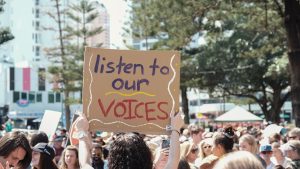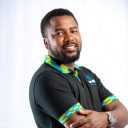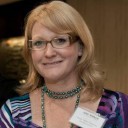We would like to respond to the learnings and discussions that we have heard recently from COP26 and the Global Philanthropy Forum. As the world’s challenges become more and more pressing due to the disproportionate impact of climate change, philanthropy too is changing. In many ways improving. Improvements that have led to getting more money out faster.
These improvements are united with aspirations for equity that push philanthropy to be more inclusive. What really stands out as a common thread to this ambition is that we must centre the voices of those most affected by climate change in global philanthropy.
We continue to see the same populations disproportionately carrying the burden. Those with the fewest resources are too often the ones hardest hit by climate change. The consequences of these impacts can be devastating, especially for women and girls. Extended drought in East Africa is jeopardizing livelihoods and eroding social support structures. This in turn increases the risk of harmful practices such as child marriage. In Uganda, we have seen families marry off their girls often as young as twelve years of age in exchange for food. These tragic consequences put women and girls at the forefront of identifying solutions and leading change in communities to stop the disproportionate burden that has for too long been put upon them.
The opportunities for philanthropists to centre community voices and work together for equity are endless.
So, how can we connect philanthropy’s ambitions for equity with the communities directly affected by climate change? Fortunately, we see a lot of grassroots initiatives already happening. Communities cannot afford to wait. We challenge philanthropists to be brave and forward-thinking in terms of building new partnerships. The easy path would be to stick with existing partnerships where trust and history already exists. It takes courage and open-mindedness to forge new partnerships that are by design, shifting the traditional power dynamics and centring community voices. Grassroots leaders and global health leaders also bear the responsibility of bringing partnership opportunities to the forefront, so philanthropists can move to a more equity-focused model.

In September 2019, youth protesters in Gold Coast, Australia join the global climate strike, School Strike 4 Climate. Image credit: Shutterstock
Local solutions at work
Equalize Health is a global nonprofit with teams in New Delhi, Kenya, and the USA, that designs medical solutions in partnership with local healthcare workers and communities. From locally-driven healthcare worker training, locally-led user research, to finding the most promising local innovations, a rich human-centred design process ensures community voices are at the centre of designing these solutions. One example is the team’s current partnership with southern Africa OB-GYN, Dr Justus Hofmeyr, to design solutions for early detection and treatment of postpartum hemorrhage, the leading cause of maternal death globally.
Reach a Hand Uganda is a youth-led non-profit organization focused on youth empowerment programs with an emphasis on Sexual Reproductive Health and Rights. At Reach a Hand, our peer-to-peer model ensures thousands of young people have the support and guidance to set up their own initiatives and organizations to solve the most pressing challenges in their communities. What we have seen is that there is plenty of demand – which can be translated to opportunity for philanthropists.
We continue to see the same populations disproportionately carrying the burden.
Under the Peer Educator Academy, Reach A Hand Uganda, has birthed over 12 organizations, but many of them are unable to scale due to a lack of sufficient knowledge and resources on how to build sustainable organizations. To date, our efforts have not been well funded, and most of what we have done has been on a pro bono basis. This is not sustainable and we will not see these inspiring young leaders at the centre of the global response unless we choose to invest in them now. From working with thousands of young people across East Africa, our take-home is that this is a huge missed opportunity for philanthropists. Young people in the communities most affected by the climate crisis have a unique energy and knowledge, compared to professional established organizations, that drives innovation, urgency, and inclusivity to the heart of the solution.
Former peer educator, Don Zane Muwanguzi founded, Awesome Minds Speaks, a nongovernmental organization whose main focus is to promote positive mental health and emotional wellbeing of young people and has reached thousands of young students through partnerships with local schools, that foster dialogues among many other key initiatives.
Locally led organisation Droty Uganda’s aim is to empower underprivileged rural young people between ages 10 -24 years in Kyotera and Rakai districts situated in southwestern Uganda. In partnership with the district government, they are improving hygiene and sanitation, one of the leading causes of high dropout rates and absenteeism for students, especially girls, in the region.
Connect. Trust. Collaborate
We could list countless more examples, and this is only from a small corner of the world. The opportunities for philanthropists to centre community voices and work together for equity are endless. The key next steps are to create opportunities to build trust, take risks on new partnerships, and be inclusive when bringing together stakeholders. Has the pandemic and climate crisis pushed you to rethink your strategy? Include us in the conversation. Think about time zones when convening groups. Bring grassroots leaders into the design process. Connect. Trust. Collaborate. We believe this is the pathway to equity.
Humphrey Nabimanya is the Founder and CEO of Reach A Hand Uganda. Stephanie Heckman is the Director of Development and Partnerships at Equalize Health.






Comments (0)